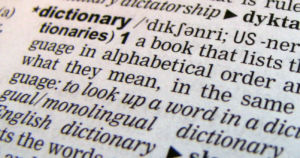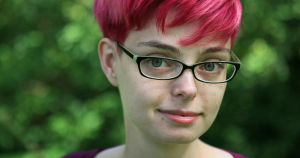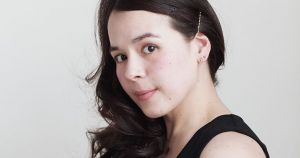
Review: Blind by Rachel DeWoskin
Although I sometimes genuinely enjoyed myself while reading this book, those times were unfortunately outweighed by the serious inaccuracies.

Although I sometimes genuinely enjoyed myself while reading this book, those times were unfortunately outweighed by the serious inaccuracies.

Although the book was fun and interesting in places, the disability aspect was very much a freak-show presentation of disability and the disabled experience.

Hunt captures the inner confusion when you aren’t getting something everyone else grasps easily that is a pre-diagnosed dyslexic’s life. Ally’s situation conjured up so many memories at first that it was hard for me to read, but the reward was great.

Queens of Geek is an authentic and refreshing portrayal of an autistic and anxious girl.

To help authors make informed decisions about what language to use, we talk about disability terminology–from outdated words and cringe-worthy phrases to straight-up ableist slurs, and everything in between.

Our reviewers interview author and Disability in Kidlit editor Corinne Duyvis about disability tropes, survival in the apocalypse, and writerly research.

In science-fiction and fantasy, you invariably run into fictional disabilities and allegories. Do these “count” as disability? What makes them work successfully in a book?

Heidi Heilig and S. Jae-Jones sit down to talk about the book’s portrayal of bipolar disorder, writing mental illness, and writing with a mental illness.

The world does its best to remove our autism from the mainstream narrative of life, hiding either it or us whenever possible. In the world of fiction, we often see these same attempts.

We sat down with NYT bestselling author Leigh Bardugo to talk about her most recent series, its depiction of disability, and more!